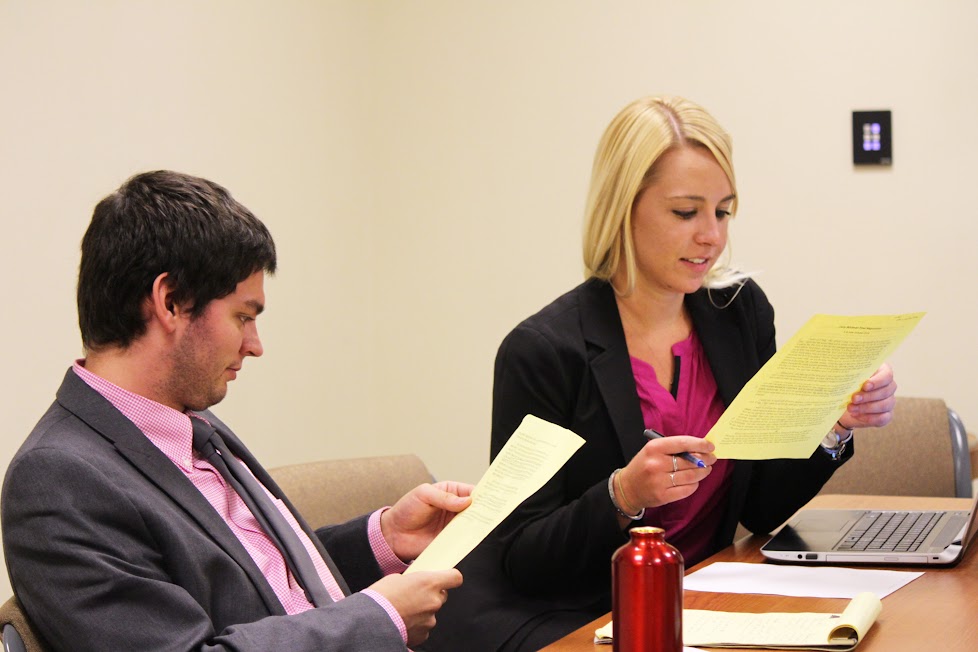
The best education allows students to thoughtfully explore the big ideas that drive our society and gain exposure to the skills used by effective problem solvers. Our compliance and ethics practicums are unique experiential learning opportunities where a student and full-time faculty member collaborate with a partner organization to support students in gaining valuable compliance and ethics experience.
The compliance and ethics practicums involve students becoming members of compliance or legal departments in leading organizations or government agencies. Typically, students will work on developing, supporting, and implementing policies and controls. These instruments are designed to prevent and respond to potential violations of laws, regulations, or industry standards. Our government practicum allows students to understand the regulators’ perspectives on effective compliance and ethics programs. Students work a minimum of 10-12 hours per week and submit a weekly log and reflections to a faculty supervisor with whom they meet regularly.
Compliance and ethics practicum placements have been available at the following organizations:
- Aramark
- Children’s Hospital of Philadelphia
- Temple University Health System
- Temple University Ethics and Compliance Office
- Pennsylvania Office of Inspector General
- United States Attorney’s Office for the Eastern District of Pennsylvania
Students that participate in the Center for Compliance and Ethics Practicum programs find it to be an invaluable experience. Read the testimonials below to learn more about how our practicum program benefits the students and the host organizations.
The compliance practicum experience with Temple University Health System exposed me to a dynamic and growing field of law: data privacy. In the context of health law, data privacy—primarily regulated through HIPAA—governs the use and storage of individual identifiable information by health-care providers. As hospitals and health networks expand collaborative partnerships at home and across the globe, nimble legal professionals must provide actionable and accurate advice to ensure providers focus on rendering efficient medical service compliant with the law. In addition, U.S. lawyers practicing in this field will interact with international regimes, such as the GDPR, which provides data customers more positive rights, as opposed to the negative (prescriptive) law enshrined in HIPAA and similar U.S. regulations. This international perspective, coupled with the statutory knowledge required in the U.S. legal context, will undoubtedly enhance students’ legal knowledge and prepare them for legal practice ripe for international and cross-border collaborations.
Additionally, this exhilarating experience improved my understanding of the role and focus inherent in legal departments or in-house teams for large companies or organizations. My supervisor, Maribel Valentin, also gave me the invaluable opportunity to sit-in and observe how the bright legal minds shepherding the university’s health system discuss, reason, and help one another to resolve complex legal issues. Seeing how this group of attorneys confided in the in-house team’s legal knowledge to spot issues and strategize on effective resolution tactics reassured me that the practicum experience not only satisfied academic credits through substantive assignments, but also equipped me with useful skills to employ in practice and beyond.

One of the benefits of being a Temple Law student is the opportunity to step out of the classroom and work in the field with practice area experts. As a participant in the Center for Compliance and Ethics Practicum, I have had the opportunity to build fundamental skills in healthcare compliance. Through the efforts of Professor Jon Smollen and Bea Raccanello, of the Center for Compliance and Ethics at Temple Law, I have been given the opportunity to intern with Temple University Health System and experience the day-to-day work of a compliance department in a major healthcare entity. No textbook or class discussion can measure up to the benefits of an experience like this one.
I have been working at Temple University Health System in the Office of General Counsel, specifically with Senior Counsel, Corporate Compliance and Privacy Officer, Maribel Valentin. At Temple Health, I am gaining firsthand experience in understanding the compliance and regulatory risks of a major healthcare organization. I am actively learning and working in privacy matters related to HIPAA and HITECH. (The regulations that address information privacy, data security and breach response processes for healthcare compliance officers.) I have reviewed Business Associate Agreements and Data Use Agreements for possible privacy issues. I appreciate how a strong compliance program is critical to the success of a company that operates under demanding federal and state regulation. Seeing first-hand the necessity to stay compliant in privacy matters has shown me that responsible compliance programs require up to date knowledge of current issues. Working in a cutting-edge area with rapidly changing concerns has been a refreshing contrast to exclusively working through case law covering topics from over a hundred years ago. Privacy and information security compliance is and will continue to be a growing practice in our connected digital world.
Working in a compliance department is not your typical law school internship. I have participated in meetings with compliance officers, human relations professionals and auditors who are working to build and maintain a cohesive entity, one that is not siloed but is universally focused on a common mission. Issues that arise are solved with a focus on legal and business motivated solutions. I have learned that the work includes assisting entities in assessing their “risk appetite” and planning how to make sound business and compliance decisions. Identifying emerging compliance issues is a crucial part of good corporate risk management. Successful compliance programs prevent litigation, identify regulatory risk, and help better manage company assets. The work has given me a sense of how compliance programs address government expectations.
What I enjoy most is the insight that I gather from our bi-weekly meetings with Professor Smollen, Ms. Raccanello and my peers who are also participating in the Center’s Practicums. We discuss and compare our experiences. Students have been placed in government agencies, not-for-profit entities and for-profit corporations. There is much to learn from one another. Our meetings and discussions have helped me to see the “big-picture” of how laws, rules and regulation impact business and are applied by government agencies. Specifically, I have learned what regulations the government might prioritize enforcing and how different organizations develop compliance programs to adhere to the latest regulatory mandates.
A benefit of participating in the Center’s Practicum is that it allows participants to stand out from the field. A career in compliance and ethics may not be every student’s aspiration, but an experience like mine has already made me unique to employers who have an ever-growing need for compliance and ethics professionals. As I continue this summer and into my final year of school, I plan to build on my knowledge and skill set to begin a career as a compliance and ethics professional. Without the Center’s Practicum, I might have limited my professional aspirations to the courtroom or a law firm. I now know of a new legal path and all the possibilities of a career in compliance and ethics. I would recommend this experience to any current or future Temple Law student.

To learn more about the current practicums offered by the Center for Compliance and Ethics, please click the button below.
